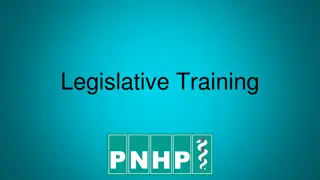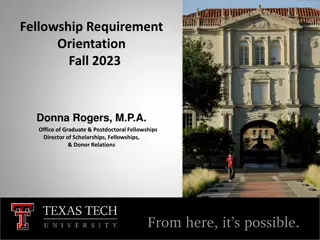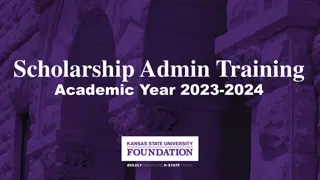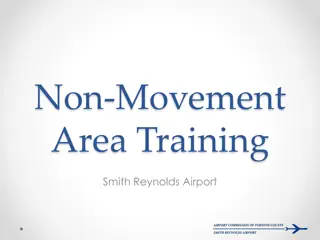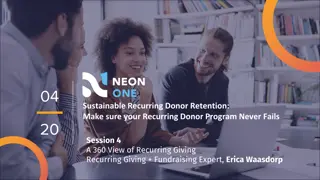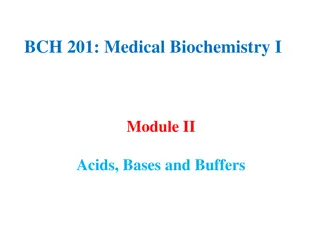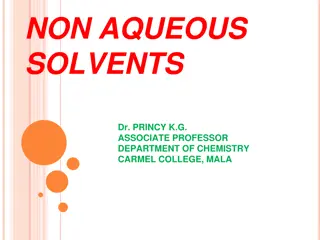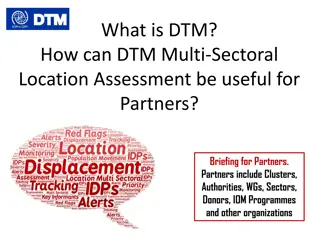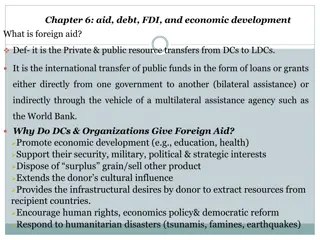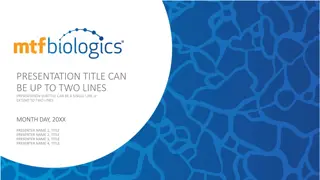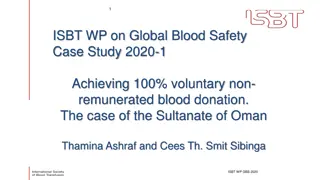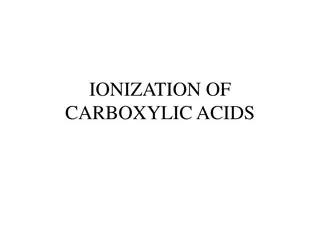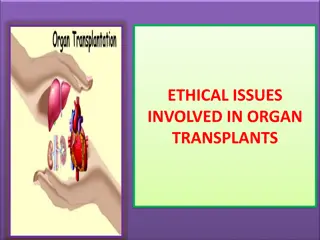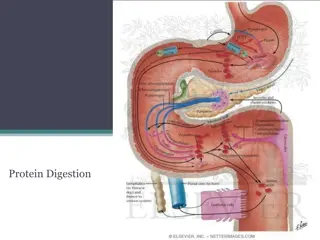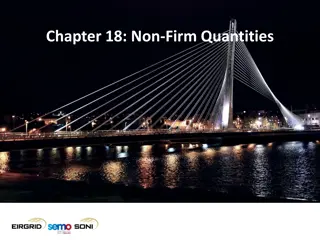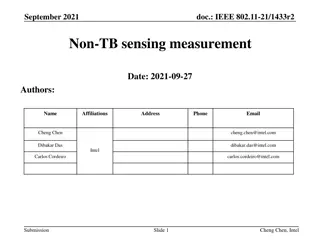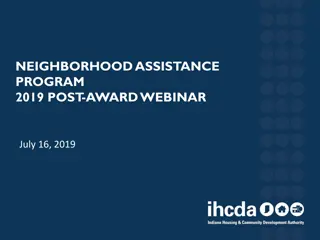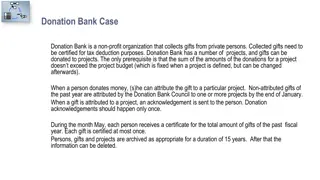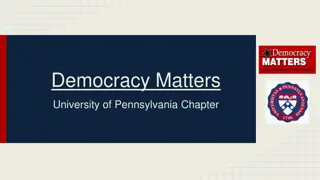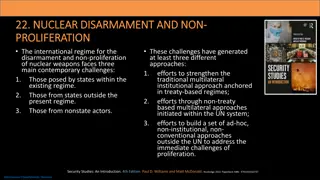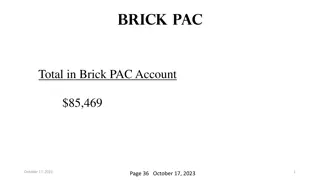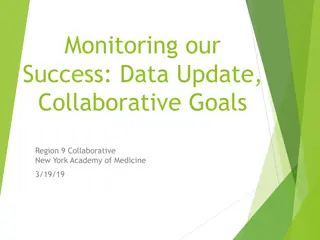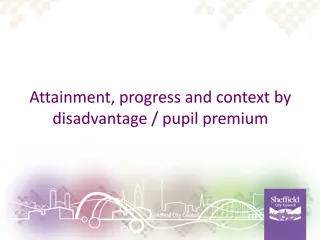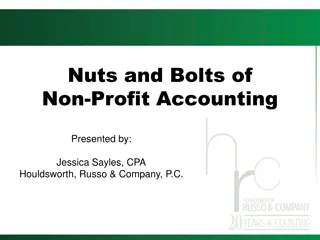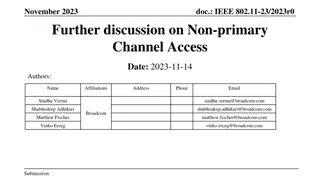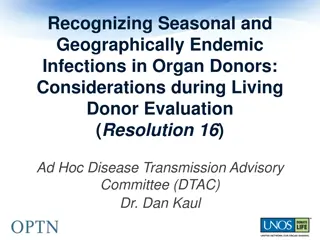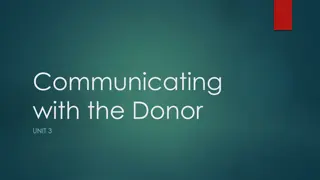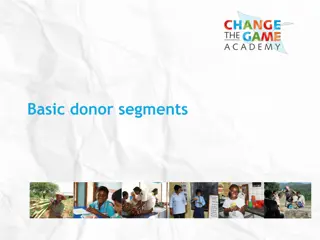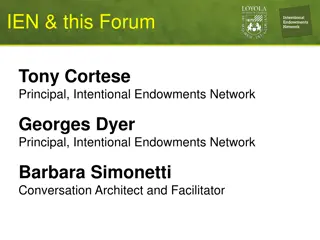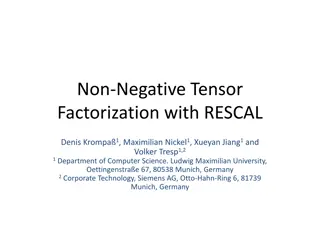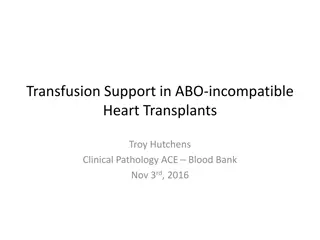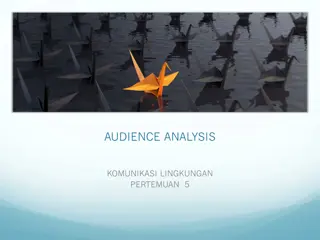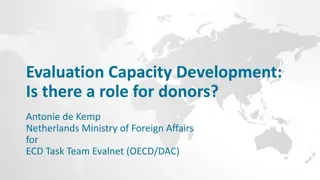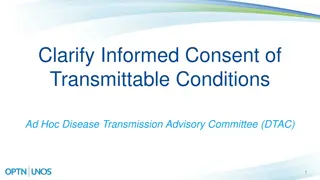Effective Fundraising Strategies for Non-Profits: Unveiling the Keys to Success
Elevate your fundraising efforts with the 5 keys to successful fundraising, including building a strong team, choosing the right fundraiser, staying organized, following through, and utilizing raffles. Learn how to recruit volunteers, develop committees, engage sponsors/donors, and choose the right
0 views • 39 slides
Understanding Political Strategies and Stakeholder Analysis
Dive into the world of political tactics with a focus on stakeholder analysis, leveraging positions of power, and navigating the political landscape. Explore the dynamics of interactions with legislators, donors, and constituents to strategize effectively.
1 views • 15 slides
Fellowship Requirements and Opportunities at Texas Tech University
Explore the comprehensive fellowship requirements and opportunities at Texas Tech University, including orientation details, leadership team information, community service involvement, and benefits such as professional development events and external funding support. Learn about the purpose behind t
2 views • 14 slides
WMDA Global Trends Report 2022 - Search & Match Service Insights
Explore the latest data on unrelated donors and cord blood units, including listings per 10,000 inhabitants by country and continent, HLA DNA typing percentages, unique HLA ABDR split donors, TNC ranges, and search trends. The WMDA Search & Match Service provides valuable information for matching do
4 views • 14 slides
Understanding Endowments: Building Sustainable Support for Nonprofits
Explore the world of endowment funds with a focus on sustainable support for nonprofits. Discover the importance of endowments from donors and nonprofit perspectives, learn ways to build and grow endowments, and discuss effective communication strategies. Delve into types of agency partner funds, do
2 views • 15 slides
Scholarship Administration for Academic Year 2023-2024
In the academic year 2023-2024, the scholarship administration at Kansas State University involves various offices and processes, including the Office of Student Financial Assistance, KSU Foundation, different types of funds, MOUs, and projection balances. Donors play a significant role in contribut
1 views • 16 slides
Establishing Safety Standards in Non-Movement Areas at Smith Reynolds Airport
This guide outlines the purpose, definitions, rules, and safety measures for operating vehicles in non-movement areas at Smith Reynolds Airport. It emphasizes standardized ground movement practices to ensure the safety of airport patrons, reduce the risk of injury, and maintain a high level of safet
1 views • 12 slides
Mastering Recurring Donor Retention: Expert Insights for Sustainable Fundraising
Explore expert strategies and practical tips presented by fundraising guru Erica Waasdorp and marketing manager Sam Nyland on enhancing recurring donor retention. Learn how to prevent lapses, tackle cancellations, and optimize your process to ensure sustainable donor support. Dive into a 360-degree
0 views • 33 slides
Understanding Acids, Bases, and Buffers in Medical Biochemistry
Biologically important molecules, such as acids and bases, have significant roles in metabolism. Strong acids like hydrochloric acid ionize completely, while weak acids and bases play crucial regulatory roles. The Bronsted-Lowry theory defines acids as proton donors and bases as proton acceptors. Eq
0 views • 29 slides
Understanding Non-Aqueous Solvents: Types and Classification
Inorganic non-aqueous solvents play a crucial role in chemical research and industry. This article by Dr. Princy K.G. delves into the classification of solvents based on protonicity, polarity, and aqueous vs. non-aqueous nature. It explores the types of non-aqueous solvents, such as protonic and non
1 views • 29 slides
Understanding DTM Multi-Sectoral Location Assessment for Partners
DTM, or Displacement Tracking Matrix, is a comprehensive tool used in 80 countries to track movements in various contexts like conflicts and natural disasters. The Multi-Sectoral Location Assessment within DTM involves components like Flow Monitoring, Mobility Tracking, and Registration Surveys to g
5 views • 15 slides
Understanding Foreign Aid, Debt, FDI, and Economic Development
Foreign aid refers to the transfer of resources from developed countries to less developed countries to promote economic development, support security interests, and address humanitarian needs. Donors give aid for political and economic reasons, with foreign exchange constraints playing a significan
1 views • 31 slides
MTF Biologics: Advancing Healthcare Through Tissue Donation
MTF Biologics is a global nonprofit organization dedicated to saving and healing lives through tissue and organ transplantation. They uphold high standards, provide exceptional services, and support healthcare providers, donors, patients, clinicians, and researchers. By transforming, collaborating,
0 views • 19 slides
ANC Position on Political Party Funding Act
Practical insights on ANC's commitment to transparent political party funding, emphasizing the challenges and potential impact on donor behavior and party financing. The Act aims to regulate funding to enhance democracy, limit influence of large donors, and promote accountability.
0 views • 5 slides
Understanding Temperature Effects on Donor and Acceptor Ionization in Semiconductors
Temperature plays a crucial role in the ionization of donor and acceptor atoms in semiconductors. In N-type semiconductors, the Fermi level lies below the conduction band, while in P-type semiconductors it lies above the valence band, with the position depending on temperature and impurity atoms. Do
1 views • 13 slides
Achieving 100% Voluntary Non-Remunerated Blood Donation in Oman
In the Sultanate of Oman, the Department of Blood Services has successfully moved towards 100% Voluntary Non-Remunerated Blood Donation (VNRBD), focusing on motivating the public to donate blood regularly. This shift has led to a significant increase in blood donations from 2007 to 2011, with a grow
1 views • 26 slides
Understanding Ionization of Carboxylic Acids
Carboxylic acids, as proton donors, can undergo ionization to form ions in chemical reactions based on the Brønsted-Lowry theory. Ionization involves the complete loss or gain of electrons, leading to the formation of cations (positively charged ions) and anions (negatively charged ions). Through e
1 views • 13 slides
Ethical Issues in Organ Transplants
Organ transplantation involves the moving of organs from one body to another to replace damaged or absent organs. The process includes cadaveric and living organ donations, with various transplantable organs like lungs, kidneys, heart, and more. There are ethical issues surrounding organ donation de
0 views • 16 slides
Understanding Protein Digestion and Amino Acid Metabolism
The process of protein digestion involves proteolytic enzymes produced by the stomach, pancreas, and small intestine. Pepsinogen is activated to pepsin in the stomach, breaking down proteins into oligopeptides and amino acids. After absorption, amino acids are utilized for protein synthesis and as d
0 views • 7 slides
Understanding Non-Firm Quantities in Electricity Markets
Non-Firm Quantities in electricity markets involve units with non-firm access not being compensated for their non-firm capacity not getting accommodated on the system. The concept of Firm Access Quantity plays a key role in determining compensation levels for units, with differences in implementatio
0 views • 6 slides
Understanding Non-Compete Agreements: Enforceability and Requirements
Non-compete agreements are commonly used in the United States to protect businesses from competition by former employees. To be enforceable, these agreements must meet certain requirements, including independent consideration, protection of legitimate business interests, and reasonableness in scope,
0 views • 26 slides
Comparison of Trigger-based vs. Non-Trigger-based Sensing Measurement in IEEE 802.11
The document discusses the differences between Trigger-based (TB) and Non-Trigger-based (Non-TB) sensing measurement instances in IEEE 802.11 standards, focusing on who initiates the sensing measurement. TB sensing is initiated by the AP, while Non-TB sensing is initiated by a non-AP STA, enabling o
6 views • 13 slides
Neighborhood Assistance Program Overview 2019-20
The Neighborhood Assistance Program (NAP) in Indiana provides $2.5 million in tax credits annually to non-profit organizations. Administered by the Indiana Housing and Community Development Authority (IHCDA), NAP offers a valuable fundraising and capacity building tool for eligible organizations. Ta
0 views • 30 slides
Efficient Management of Donations at Donation Bank
Donation Bank is a non-profit organization that collects gifts from private individuals. Gifts need to be certified for tax deduction purposes and attributed to specific projects. Donors receive acknowledgements and certificates for their contributions. The organization maintains archives for person
0 views • 19 slides
Strengthening Democracy: Empowering Tomorrow's Leaders
Democracy Matters, a non-partisan student organization, aims to combat the influence of big private money in politics. By educating and training college students on grassroots organizing and advocating for pro-democracy reforms, they seek to re-engage students in politics, empower them with necessar
0 views • 20 slides
Contemporary Challenges in Nuclear Disarmament and Non-Proliferation Regime
The international regime for nuclear disarmament and non-proliferation faces challenges from states within and outside the regime, as well as non-state actors. Various approaches are being utilized to address these challenges, including strengthening multilateral institutions, non-treaty-based multi
0 views • 12 slides
Brick PAC Donor List - October 17, 2023
The Brick PAC donor list for October 17, 2023, includes various donors across different contribution levels - Bronze, Silver, Gold, and Platinum. Donors range from individuals to brick companies, collectively contributing to the Brick PAC Account. The list showcases the support received from the bri
0 views • 7 slides
Organ Donation Collaborative Data Update and Goals Review
The data update and collaborative goals review for the Region 9 Collaborative at the New York Academy of Medicine includes information on national data for total donors and transplanted organs from 2014 to 2018. The goals of the collaborative focus on enhancing organ donation rates and achieving spe
0 views • 9 slides
Improving Attainment and Progress of Disadvantaged Pupils in Sheffield
Attainment and progress of disadvantaged pupils in Sheffield show an improving trend across key stages, although the gaps between disadvantaged and non-disadvantaged students are not closing fast enough. Data suggests that disadvantaged pupils with low prior attainment are making better progress in
0 views • 29 slides
Understanding Non-Profit Accounting Essentials
Learn the basics of non-profit accounting, including what defines a non-profit organization, common types of non-profits, governance structures, and legal responsibilities. Discover key insights on IRS and state requirements for non-profits in this informative presentation by Jessica Sayles, CPA fro
0 views • 55 slides
Further Discussion on Non-primary Channel Access in IEEE 802.11
This contribution delves into the utilization of non-primary channels for access in IEEE 802.11 networks, focusing on enhancing frequency reuse, adhering to ETSI standards, evaluating CCA capability types, and analyzing non-ideal deployment scenarios. It discusses the complexity and benefits of non-
0 views • 26 slides
Guidance on Recognizing Seasonal and Geographically Endemic Infections in Organ Donors
This proposal aims to provide guidance for identifying and testing potential living organ donors for seasonal and geographically endemic diseases, such as Histoplasmosis, Chagas, and West Nile Virus. The strategic plan focuses on promoting transplant patient and living donor safety by evaluating ris
0 views • 9 slides
Effective Communication Strategies for Donor Engagement
Understanding the levels of communication in donor engagement is crucial for nonprofits. From large group presentations to one-on-one interactions, each level serves a unique purpose in nurturing relationships with donors. Tailoring communication based on the donor's level of engagement can lead to
0 views • 29 slides
Understanding Donor Segmentation for Effective Engagement
Explore different donor segments such as donors, non-donors, lapsed donors, and potential supporters connected to your organization. Learn how to develop strategies to engage non-donors, convert them into donors, and encourage existing donors to bring in new supporters. Utilize this segmentation to
0 views • 26 slides
Intentional Endowments Network: Promoting Sustainable Investing in Higher Education
The Intentional Endowments Network (IEN) provides direct support and facilitates cross-sector collaboration for higher education institutions, non-profits, advocacy groups, investment firms, and more. Their initiatives focus on thought leadership, peer networking, and forums for presidents, CFOs, tr
0 views • 17 slides
Non-Negative Tensor Factorization with RESCAL
This article discusses non-negative tensor factorization with RESCAL, covering topics such as Non-Negative Matrix Factorization, Multiplicative Updates, RESCAL for Relational Learning, and Non-Negative Constraint for RESCAL. It explores how factorizing matrices/tensors into non-negative factors can
0 views • 11 slides
ABO-Incompatible Heart Transplants: History, Rationale, and Outcomes
ABO-incompatible heart transplants have become a crucial option due to limited pediatric organ donors. The rationale behind such transplants includes the development of antibodies post-6 months. Despite detectable donor-specific isohemagglutinins, successful outcomes have been achieved. Current crit
0 views • 17 slides
Effective Audience Analysis for Successful Communication
Understanding the target audience is crucial for effective communication. This involves analyzing who the audience is, why it is important to communicate with them, and how messages can be tailored to meet their specific needs. By identifying parameters, customization strategies, and desired reactio
0 views • 19 slides
Evaluation Capacity Development: Role of Donors in Supporting ECD Initiatives
The presentation discusses the involvement of donors in supporting Evaluation Capacity Development (ECD) initiatives, highlighting areas such as training, conferences, technical assistance, and impact evaluation. It addresses limitations, lessons learned, the importance of networking and partnership
0 views • 11 slides
Enhancing Informed Consent for Transmittable Conditions in Transplant Procedures
Proposing solutions to improve the informed consent process for transplant recipients in cases where donors have known transmittable medical conditions. The current policy is vague and burdensome, requiring individual consent for each positive test result, leading to monitoring and enforcement chall
0 views • 19 slides

